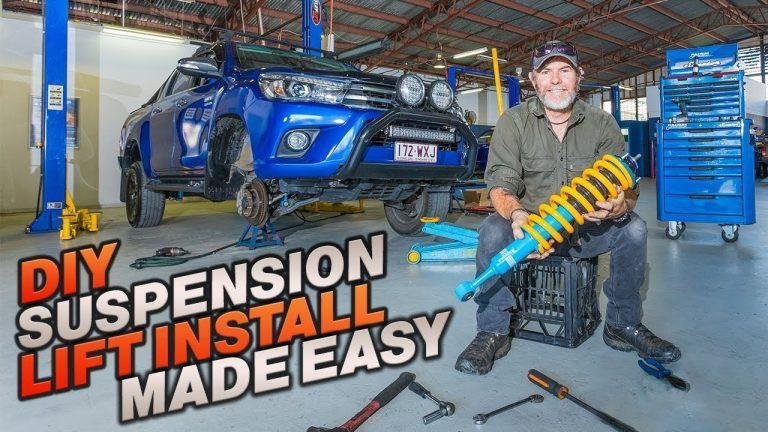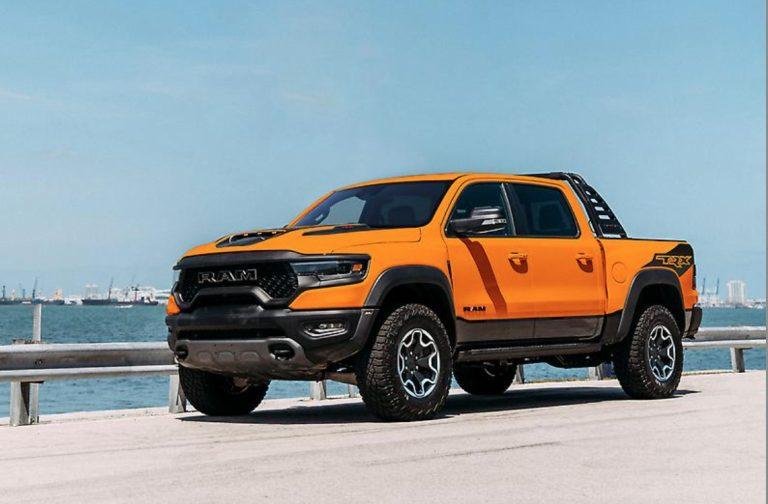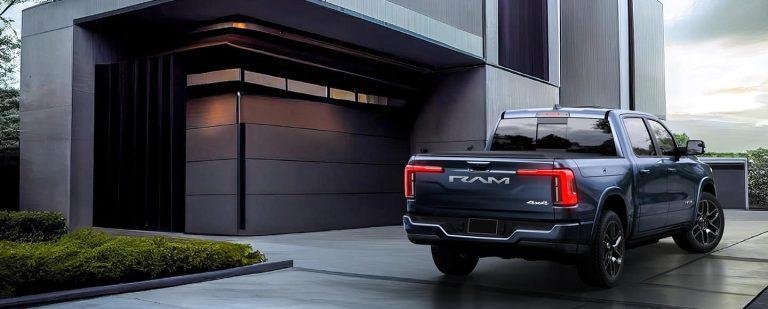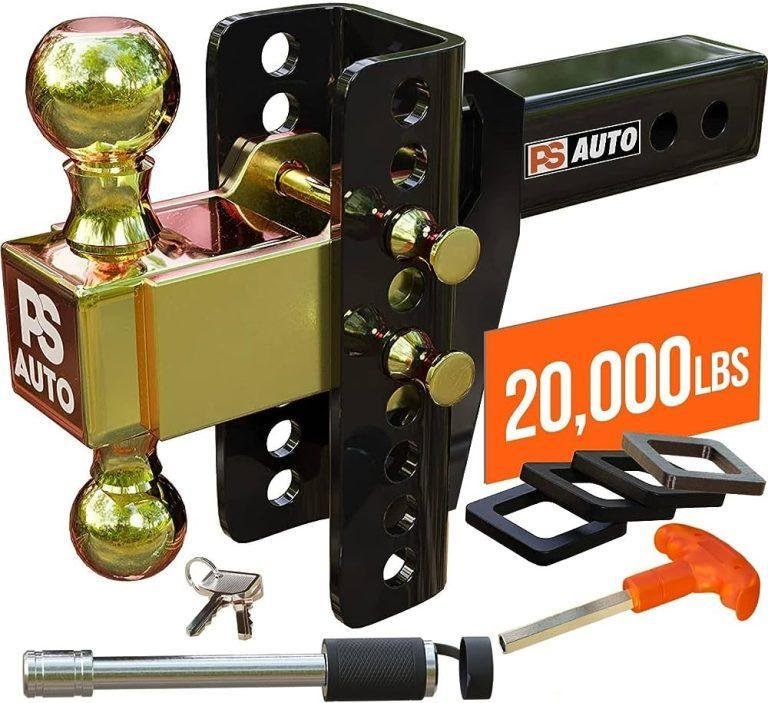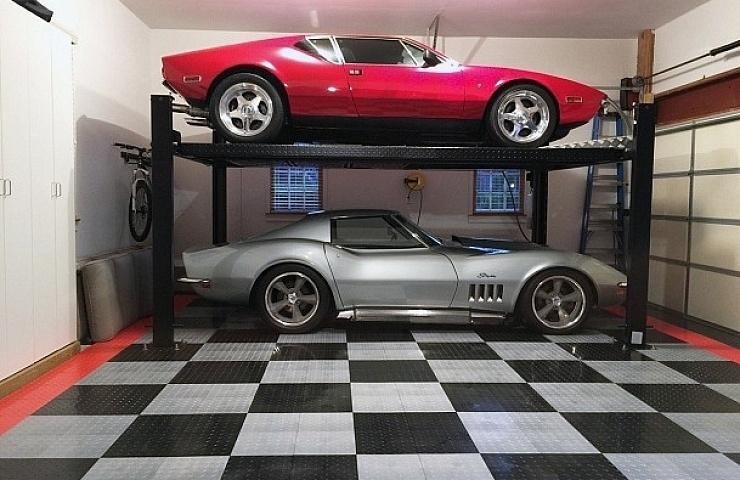A pintle hitch offers more towing stability than a ball hitch. It provides a secure connection and is preferred for heavy-duty applications.
In addition to its stability, it allows for quick and easy hook-up and is more durable than a ball hitch. With its versatile design, a pintle hitch can accommodate various towing needs, making it a better choice for many towing situations.

Credit: store.lci1.com
Understanding Towing Basics
Discover the key differences between a pintle hitch and a ball hitch and determine which option suits your towing needs best. Gain insights into their pros and cons to make an informed decision.
Towing may seem like a straightforward process, but selecting the right towing equipment is crucial to ensure a safe and efficient journey. There are various methods of towing, each with its own advantages and considerations. In this section, we will provide an overview of traditional towing methods and discuss the factors to consider when choosing between a pintle hitch and a ball hitch.
Importance Of Selecting The Right Towing Equipment
When it comes to towing, choosing the appropriate equipment is vital for a successful and secure experience. Here are some key points to keep in mind:
- Safety: Opting for the correct towing equipment enhances safety on the road, reducing the risk of accidents and ensuring stability during transport.
- Weight capacity: Different towing equipment has varying weight capacities. It’s important to select equipment that can adequately handle the weight of your load to avoid strain on your vehicle and potential damage.
- Compatibility: Consider the compatibility between your tow vehicle, the trailer or load being towed, and the towing equipment. Proper fitment is crucial for efficient towing.
- Ease of use: The right towing equipment can make your towing experience much smoother. Consider the ease of coupling and uncoupling, as well as any additional functionalities that suit your needs.
- Versatility: Depending on your towing needs, versatility may be an important factor. Some towing equipment may be suitable for a wide range of loads and trailers, while others may have limitations.
Overview Of Traditional Towing Methods
Before we delve into the debate between pintle hitches and ball hitches, let’s first understand the two traditional towing methods commonly used:
- Pintle hitch:
- A pintle hitch consists of a lunette ring mounted on the trailer tongue, which is then coupled with a pintle hook on the tow vehicle.
- This method is known for its strength, durability, and ability to handle heavy loads.
- Pintle hitches are commonly used in commercial and heavy-duty towing applications such as construction or agricultural industries.
- Ball hitch:
- A ball hitch utilizes a ball-shaped coupler on the trailer tongue, which connects to a receiver hitch on the tow vehicle.
- This method is favored for its ease of use, versatility, and compatibility with a wide range of trailers and loads.
- Ball hitches are commonly used for recreational towing, such as towing trailers for household purposes or hauling smaller loads.
Factors To Consider When Choosing Between A Pintle Hitch And A Ball Hitch
Now that we have a basic understanding of traditional towing methods, let’s explore some factors to consider when deciding between a pintle hitch and a ball hitch:
- Towing capacity and load type: Evaluate the weight capacity required for your towing needs. Pintle hitches are generally recommended for heavier loads, while ball hitches are suitable for lighter to medium loads.
- Application and industry: Consider the specific application and industry you will be towing in. Pintle hitches are often used in commercial or heavy-duty settings, while ball hitches are commonly employed for recreational or light-duty towing.
- Vehicle compatibility: Assess whether your tow vehicle has a receiver hitch or requires modifications for a pintle hitch. Ensure your vehicle’s towing capacity aligns with the selected towing equipment.
- Maneuverability and stability: Pintle hitches are known for their stability and ability to handle rough terrain, while ball hitches offer better maneuverability and smoother towing experience on paved roads.
- Cost and maintenance: Consider the upfront cost and long-term maintenance requirements associated with the selected towing equipment. Pintle hitches generally require more maintenance due to their complex construction.
Selecting the right towing equipment is crucial for safe and efficient towing. Assess the importance of factors such as safety, weight capacity, compatibility, ease of use, and versatility when choosing between a pintle hitch and a ball hitch. Understanding your towing needs, load type, and specific industry requirements will guide you in making an informed decision.
Unleashing The Power Of Pintle Hitches
Discover the incredible power of pintle hitches and their advantages over traditional ball hitches for towing. Experience enhanced durability, versatility, and stability on the road with pintle hitches.
Pintle hitches have gained popularity in the towing industry due to their numerous advantages over traditional ball hitches. When it comes to heavy-duty towing, rough terrain, and off-road adventures, pintle hitches unleash their power to provide superior performance. In this section, we will explore the advantages of using a pintle hitch and highlight the suitable applications where these hitches excel.
Advantages Of Using A Pintle Hitch:
- Greater towing capacity: Pintle hitches offer a significantly higher towing capacity compared to ball hitches. With their sturdy construction and secure attachment, they can safely tow heavier loads without compromising stability or control. Whether you need to transport construction equipment or large trailers, a pintle hitch can handle the job with ease.
- Enhanced maneuverability: The design of pintle hitches allows for improved maneuverability, especially when navigating tight turns or narrow spaces. Unlike ball hitches, pintle hitches provide a greater range of motion, allowing your towing vehicle to turn at sharper angles. This increased maneuverability ensures smoother and more efficient towing operations.
- Improved stability and control: Pintle hitches offer better stability and control, especially in challenging towing conditions. The secure connection between the pintle hook and lunette ring minimizes sway and ensures that the trailer stays in line with the towing vehicle. This enhanced stability translates to a safer towing experience, reducing the risk of accidents or loss of control.
Suitable Applications For Pintle Hitches:
- Heavy-duty towing: Pintle hitches are the go-to option for heavy-duty towing needs. Whether you’re hauling construction materials, agricultural machinery, or industrial equipment, pintle hitches provide the necessary strength and stability to handle the load. Their robust construction and high towing capacity make them ideal for demanding towing operations.
- Rough terrain: When facing rough or uneven terrain, pintle hitches prove their worth. Their design allows for increased flexibility, allowing the towing vehicle to navigate through obstacles smoothly. Whether you’re towing through rugged construction sites or off-road trails, a pintle hitch ensures a reliable and stable connection between your towing vehicle and trailer.
- Off-road adventures: If you’re planning an off-road adventure, a pintle hitch is your trusted companion. The strong and secure attachment that pintle hitches provide ensures that your trailer stays connected even in the toughest off-road conditions. Whether you’re exploring rugged terrains or conquering challenging trails, a pintle hitch guarantees optimal performance and peace of mind.
Pintle hitches offer distinct advantages over traditional ball hitches, including greater towing capacity, enhanced maneuverability, improved stability, and control. Their suitability for heavy-duty towing, rough terrain, and off-road adventures makes them the preferred choice in those challenging situations. When it comes to unleashing the power of towing, pintle hitches prove to be a reliable and efficient option.
The Benefits Of Ball Hitches
Ball hitches offer a range of benefits, making them a popular choice for towing. However, when comparing them to pintle hitches, it ultimately depends on individual needs and preferences. Both options have their advantages, with ball hitches offering versatility and ease of use, while pintle hitches provide increased durability and stability.
When it comes to towing, having the right hitch can make all the difference. One popular option is the ball hitch, known for its versatility, ease of use, and wide availability of accessories. In this section, we’ll explore the advantages of using a ball hitch and discuss the ideal scenarios where it shines.
Advantages Of Using A Ball Hitch:
- Versatility and compatibility: Ball hitches are compatible with a wide range of trailers, making them a versatile option for towing different types of loads. Whether you need to tow a boat, a camper, or a utility trailer, a ball hitch can handle the job.
- Ease of use and installation: Installing a ball hitch is a straightforward process that doesn’t require any specialized tools. Simply attach the hitch ball to the mount on your vehicle, secure it with a pin and clip, and you’re ready to go. This simplicity makes it easy for anyone to use, even if they’re not experienced in towing.
- Wide availability of accessories: One of the advantages of ball hitches is the wide range of accessories and add-ons available, such as weight distribution systems and sway control devices. These accessories can enhance the towing experience, improve stability, and help distribute the weight more evenly, ensuring a smoother ride.
Ideal Scenarios For Ball Hitches:
- Standard towing needs: If you have standard towing needs, such as hauling a small to medium-sized trailer or transporting personal equipment, a ball hitch is an ideal choice. Its compatibility with various trailers and ease of installation make it a go-to option for everyday towing.
- Light to medium loads: Ball hitches are well-suited for towing light to medium loads. Whether you need to transport furniture during a move or haul gardening equipment, a ball hitch can handle these tasks with ease.
- Highway driving: If you frequently find yourself on the highway, a ball hitch is a reliable and safe option. Its stability and compatibility with various trailers make it suitable for long-distance journeys, ensuring a smooth and secure towing experience.
Ball hitches offer versatility, ease of use, and a wide range of accessories, making them a popular choice for towing needs. Whether you’re towing standard loads, light to medium items, or hitting the highway, a ball hitch provides the reliability and convenience you need.
Examining Performance Factors
Choosing between a pintle hitch and a ball for towing involves examining performance factors like stability, weight capacity, and ease of use. Which option is better depends on the specific towing needs and preferences of the user.
Towing a trailer requires a secure connection between the vehicle and the trailer hitch. One of the key decisions you’ll face when selecting a trailer hitch is choosing between a pintle hitch and a ball hitch. Pintle hitches and ball hitches each have their own advantages and drawbacks.
In this section, we will compare the towing capacity, stability and control, and impact on maneuverability and turning radius of pintle hitches and ball hitches.
Comparison Of Towing Capacity Between Pintle Hitches And Ball Hitches:
- Pintle hitches generally have a higher towing capacity compared to ball hitches. This makes them ideal for heavy-duty towing needs.
- Ball hitches, on the other hand, are typically better suited for lighter loads and are commonly used for towing small trailers and recreational vehicles.
Evaluating Stability And Control During Towing:
- Pintle hitches offer enhanced stability and control due to their design. They provide a secure connection between the vehicle and the trailer, reducing swaying and improving overall handling.
- Ball hitches, although reliable, may experience more movement and sway when towing larger loads, potentially impacting stability and control.
Assessing The Impact On Maneuverability And Turning Radius:
- Pintle hitches can affect maneuverability and turning radius due to their larger size and protruding design. They may limit the vehicle’s ability to make sharp turns, especially in tight spaces.
- Ball hitches are generally more compact and do not have the same impact on maneuverability and turning radius. They offer better flexibility in navigating challenging terrain or crowded areas.
Choosing between a pintle hitch and a ball hitch ultimately depends on your specific towing needs. If you require higher towing capacity and enhanced stability, a pintle hitch might be the right option. However, if maneuverability and turning radius are crucial for your towing requirements, a ball hitch may be the better choice.
Remember to consider the weight of your trailer, the type of loads you’ll be towing, and the vehicle’s towing capabilities when making your decision.
Considering Practical Factors
A pintle hitch and a ball hitch are both practical options for towing, but each has its own advantages. Consider factors such as towing capacity, ease of use, and stability to determine which option is better suited for your needs.
When it comes to choosing the right towing option for your needs, there are several practical factors to consider. Let’s take a closer look at the cost comparison between pintle hitches and ball hitches, as well as the maintenance and durability of each towing option, and the availability and compatibility of tow vehicles and trailers.
Cost Comparison Between Pintle Hitches And Ball Hitches
- Pintle hitches:
- Generally more affordable than ball hitches.
- Cost-effective option for heavy-duty towing needs.
- Less complex design, resulting in lower manufacturing costs.
- Fewer moving parts, which can reduce the need for expensive repairs or replacements.
- Ball hitches:
- Can be more expensive than pintle hitches.
- Varying prices depending on the weight capacity and quality.
- Additional costs may include installation and compatibility with different tow vehicles and trailers.
- Wide availability of accessories and options, which may increase the overall cost.
Considering the cost aspect, pintle hitches are often the more budget-friendly choice, particularly for heavy-duty towing needs. However, it’s essential to evaluate the specific requirements of your towing setup to determine the most cost-effective option.
Maintenance And Durability Of Each Towing Option
- Pintle hitches:
- Low-maintenance option due to their simple design.
- Typically constructed with sturdy materials, such as cast iron or steel.
- Resistant to wear and tear, making them suitable for rugged conditions.
- Regular visual inspection and lubrication are usually sufficient for maintenance.
- Ball hitches:
- Depending on the quality and materials used, maintenance requirements can vary.
- Some ball hitches may require regular greasing to prevent corrosion and ensure smooth operation.
- Can be susceptible to wear and damage over time, particularly if exposed to harsh conditions.
- Components like the ball itself may need replacement if significant wear occurs.
In terms of maintenance and durability, pintle hitches often require less attention and can withstand more challenging towing conditions. However, the specific maintenance needs may vary depending on the quality and type of ball hitch.
Availability And Compatibility Of Tow Vehicles And Trailers
- Pintle hitches:
- Widely compatible with a range of tow vehicles and trailers, including military and agricultural applications.
- Can be more challenging to find in standard consumer settings compared to ball hitches.
- Some vehicles may need additional modifications or adaptations to accommodate pintle hitches.
- Ball hitches:
- Generally more common and readily available in a variety of sizes and weight capacities.
- Compatible with a wide range of tow vehicles and trailers.
- Easy and quick to install on most vehicles without special modifications.
When considering availability and compatibility, ball hitches have the upper hand as they are more widely accessible and compatible with various tow vehicles and trailers. However, if you have specific needs or require heavy-duty towing capabilities, pintle hitches may offer better compatibility.
The choice between a pintle hitch and a ball hitch involves considering practical factors such as cost, maintenance, durability, availability, and compatibility. By evaluating your towing requirements and weighing these factors, you can make an informed decision that suits your specific needs.
Making An Informed Decision
Choosing between a pintle hitch and a ball hitch? Discover which option is better suited for your needs, ensuring an informed decision for effective towing.
Weighing The Pros And Cons Of Pintle Hitches And Ball Hitches
Choosing the right hitch for your towing needs is crucial to ensure a safe and efficient towing experience. Two popular options are pintle hitches and ball hitches. While both have their merits, it’s important to consider the pros and cons of each before making a decision.
Let’s dive into the details.
Pintle Hitches:
- Offer increased towing capacity: Pintle hitches are known for their ability to handle heavy loads, making them ideal for heavy-duty towing.
- Provide greater articulation: The design of pintle hitches allows for more movement and flexibility, enabling better maneuverability on uneven terrain.
- Quick and easy hookup: Pintle hitches are relatively easy to connect and disconnect, saving you time and effort during the towing process.
- Solid and durable construction: Pintle hitches are typically made of strong materials like forged steel, ensuring a sturdy and reliable towing solution.
Ball Hitches:
- Versatility for different applications: Ball hitches come in various sizes and weight ratings, making them suitable for a wide range of towing needs.
- Widespread compatibility: Many trailers and vehicles are designed specifically for ball hitches, making them readily available and easy to find.
- Smooth and stable ride: Ball hitches provide a secure connection between the tow vehicle and trailer, resulting in a smoother and more stable towing experience.
- Adjustable height: Ball hitches often feature adjustable height options, allowing for easy leveling of the trailer and tow vehicle.
Determining The Optimal Towing Solution For Specific Needs
Selecting the right hitch type depends on several factors specific to your towing requirements. Consider the following aspects:
- Towing capacity: Evaluate the weight of the load you’ll be towing and ensure that the hitch you choose can handle it safely.
- Trailer compatibility: Check whether your trailer is designed to be used with a pintle hitch or ball hitch, ensuring compatibility and safety.
- Maneuverability requirements: If you anticipate traversing rough or uneven terrain, a pintle hitch’s enhanced articulation may prove advantageous.
- Ease of use: Consider the ease of connection and disconnection that each hitch type offers, as well as your personal comfort level with the process.
- Accessibility: Take into account the availability and prevalence of each hitch type in your area, as well as the cost and ease of obtaining necessary accessories.
By carefully weighing these factors, you can make an informed decision and choose the optimal hitch type for your towing needs.
So, if you’re unsure whether a pintle hitch or a ball hitch is better for you, take the time to evaluate your specific requirements. Consider the pros and cons of each option and weigh them against your towing needs. Ultimately, making an informed decision will ensure that you have a safe and efficient towing experience.
Conclusion
When it comes to choosing between a pintle hitch and a ball hitch, there are a few factors to consider. Both have their advantages depending on the specific towing needs. If you prioritize versatility and ease of use, a ball hitch may be the better option.
On the other hand, if you require a stronger and more secure connection, a pintle hitch could be the right choice. It all boils down to the specific towing requirements and personal preferences. By understanding the differences and benefits of each, you can make an informed decision that best suits your needs.
Ultimately, whether you go with a pintle hitch or a ball hitch, ensuring proper installation and maintenance will guarantee a safe and efficient towing experience. So, take the time to evaluate your towing needs and choose the hitch that will provide the best performance for your specific situation.

